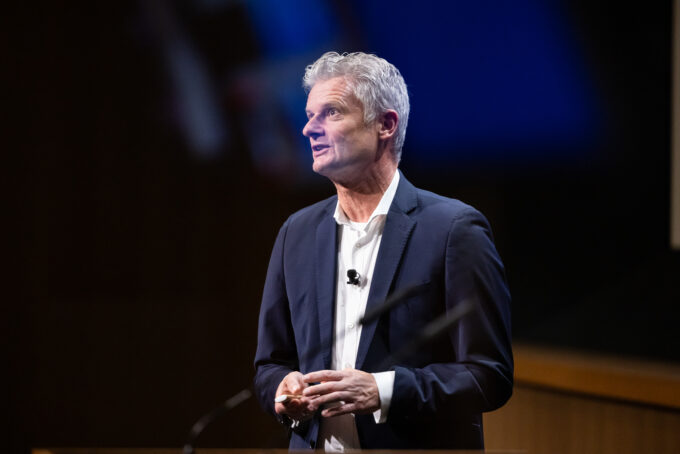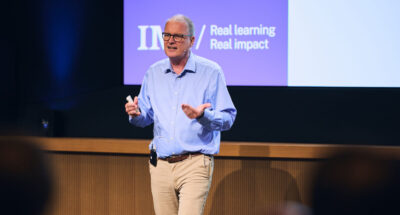Leapfrog potential
One of the first European institutions to use AI was the Portuguese Justice Ministry that invested in the technology to simplify e-services for citizens and companies. Haupter noted that the ministry had initially neglected to see the benefit in cloud technology but was now moving ahead by jumping early on the AI bandwagon.
Some 85% of Fortune 100 companies have used AI in the past year, he added. These include the likes of Swedish automaker Volvo Group, which is using AI for claims management and procurement, as well as industrial giant Siemens that is using voice-controlled technology to help make adjustments to its production cycles on the shop floor.
Haupter noted that financial institutions and telecommunication companies had been among the quickest sectors to adopt AI solutions, particularly because of their large-scale, customer-focused operations that benefit from cost savings and efficiency gains.
In contrast, European governments are still struggling with technology adoption, he said. Others, like Kenya, are leapfrogging by using AI tools to streamline legal processes, demonstrating the potential for significant advancements.
Haupter also echoed concerns by former Italian premier and European Central Bank President Mario Draghi that Europe risked falling further behind on competitiveness than other parts of the world and that collaboration with governments, academics, civic leaders and the tech sector is vital to ensuring the continent has the ability to innovate – and protect the values it stands for.
For many workers, the introduction of AI and digital tools raises unsettling questions, including whether a machine might soon replace them. A 2023 Gallup poll found that 22% of US workers worry that technology, including AI, could make their jobs obsolete.
Haupter noted however that employees are waking up to the possibility of AI to augment their existing capabilities, noting that LinkedIn has witnessed a substantial increase (142x) in members adding AI skills like Copilot and ChatGPT to their profiles.
Future generations are also actively using and experimenting with the technology. Haupter shared how his teenage children prefer to spend their money on a ChatGPT subscription over Netflix, indicating a shift with how younger generations engage with content and solve problems.
Haupter ended with the conviction that the technology offers a unique chance to address complex global challenges, particularly in healthcare, climate change, and development in regions like Africa. “That’s where my hope lies.”







